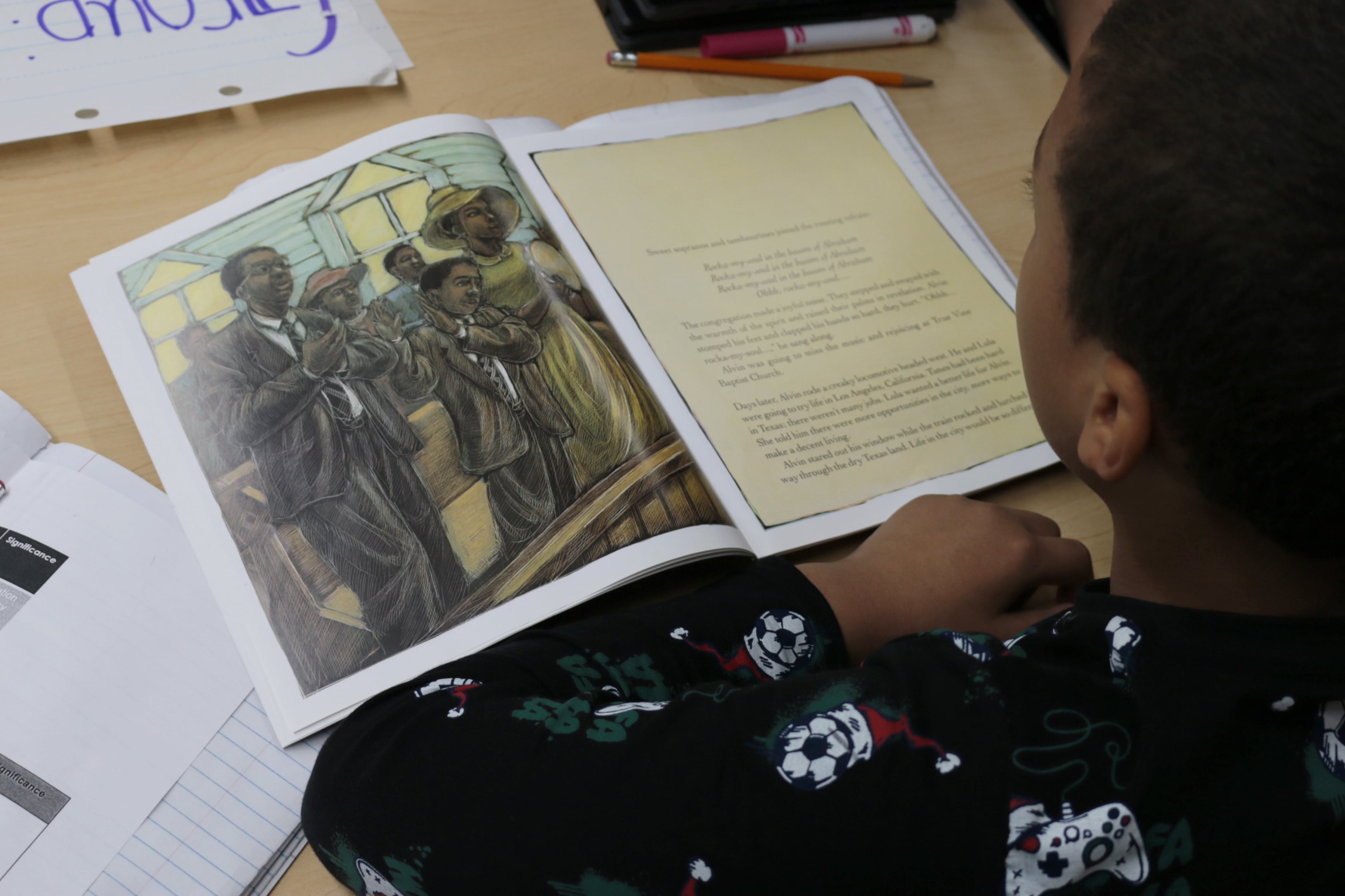Four bills introduced in the Michigan Legislature this month would aim to better identify and teach students with dyslexia, and jumpstart reform initiatives that have stalled in the past.
The new legislation comes with bipartisan support and follows years of failed efforts to better address dyslexia in school — most recently last year, when a package of bills calling for better screening of students for dyslexia languished in the Legislature.
Dyslexia is a hereditary reading disability that affects an estimated 5% to 20% of people. Students with dyslexia who go undiagnosed and don’t receive interventions are more likely to struggle in school, and studies show most people with the learning disability who get high-quality instruction early on will become average readers.
“We have to do something about it now,” said Rep. Kathy Schmaltz, a Republican from Jackson who introduced one of the bills. “When we know how to fix something and we’re not doing it, that’s on us, and our children shouldn’t have to suffer because we can’t get it together.”
The legislation includes two bills in the House and two in the Senate. All four were referred to their respective education committees. Here’s what they would do:
- A bill introduced by Sen. Jeff Irwin, a Democrat from Ann Arbor, would tighten the state standards for the literacy screeners schools use to ensure that they can identify a student who has dyslexia or has difficulty decoding language. The bill also aims to provide evidence-based support early on for students who are identified as having a reading disability.
- Sen. Dayna Polehanki, a Democrat who represents parts of Canton and Livonia, introduced a bill that would set standards for teacher education programs to ensure future educators have the tools to help students with dyslexia.
- In the House, Rep. Carol Glanville, a Democrat from Grand Rapids, introduced legislation that would create a dyslexia resource guide and advisory committee in the Michigan Department of Education.
- Schmaltz’ House bill would require school districts to have at least one teacher trained in Orton-Gillingham, a multisensory teaching methodology that research suggests helps students with dyslexia.
Rep. Mike McFall, co-sponsor of Schmaltz’ bill, said the additional resources will give teachers “more tools to ensure positive student outcomes and educational growth.”
Lawmakers who back the bill say the measures would help students who have difficulty reading and processing language due to dyslexia. But some advocates disagree, citing Michigan’s restrictive parameters for determining whether schoolchildren are eligible for special education.
The percentage of students in the state identified as having a specific learning disability, which includes students who schools identify as having dyslexia, decreased from 35% in 2013-14 to 25.9% in 2022-23, according to data from the Michigan Center for Educational Performance and Information. Nationally, the number went up during the same time period, aside from a dip during COVID.
“It is meaningless if they don’t incorporate changes to the criteria for determining specific learning disabilities,” said Marcie Lipsitt, a special education advocate.
Lipsitt also said requiring schools to have one teacher trained in Orton-Gillingham methodology presents its own challenges.
“To say you’re training Orton-Gillingham, does that mean the teacher does four hours of training and then they are considered the Orton-Gillingham teacher?” she said.
Hannah Dellinger is a reporter for Chalkbeat Detroit covering K-12 education. Contact Hannah at hdellinger@chalkbeat.org.





